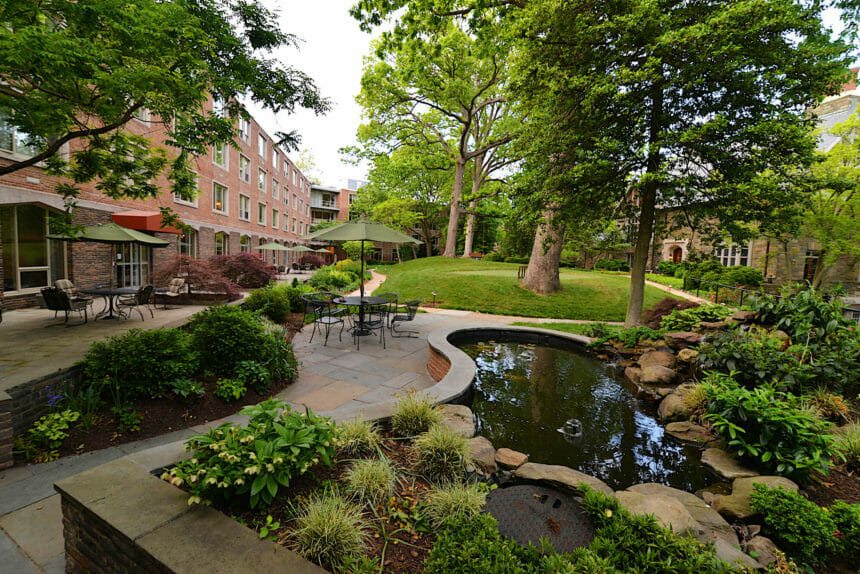
Life plan communities were the type of senior living community least affected by the COVID-19 pandemic, reaffirming their stable future, according to a report from specialty investment bank Ziegler.
In a May Ziegler CFO Hotline survey, it was revealed that eight out of 10 not-for-profit life plan communities (also known as continuing care retirement communities, or CCRCs) reporting positive COVID-19 cases had fewer than 2% of residents and staff affected. And with 10,000 individuals per day turning 65 in the United States and the growing 75+ population, COVID-19 has not changed the significant demand for housing and care presented by the growth in this demographic, Ziegler reported.
Pre-COVID-19, the life plan community sector had occupancy rates in the mid- to upper-90s. First-quarter 2020 occupancy for the communities was 92.7%, according to the National Investment Center for Seniors Housing & Care. The independent living occupancy rates were among the highest of all three levels of care.
“While we know that the levels of care within life plan communities have been impacted less than stand-alone nursing homes or assisted living facilities, it is the independent living level of living in a life plan community that will be the anchor,” the report states.
In addition, a Ziegler CFO Hotline survey in March showed a strong “growth mindset” among life plan communities, which reported making plans for expansions, new development and provider affiliations.
Although these communities will continue to see pressure in their skilled nursing units for some time, life plan communities are most likely to have larger skilled nursing units and private rooms, which will be attractive to residents and referral sources, according to the report. Other benefits of life plan communities include safety and security, reduced social isolation and concierge services, Ziegler said.
Most survey respondents indicated they are providing an “enhanced level” of concierge-type services to residents during the COVID-19 lockdown, including temporary grocery stores onsite, deliveries to resident units and customized resident activities and engagement.
“As restrictions loosen up, many of these services may stay in place for an extended period of time,” according to the report. “This is appealing to a prospective resident.”
In other coronavirus-related news:
- The American College of Health Care Administrators now has postponed its 2020 convocation to 2021 due to the coronavirus pandemic. The meeting, originally scheduled for May 3 to 6, had been rescheduled to Aug. 30 to Sept. 2.
- LeadingAge also has announced the dates for its virtual conference, which is replacing its annual conference that was to take place in November in San Antonio. The new dates for the online event are Nov. 10 to 12 and 17 to 19.
- Coronavirus impacts to vulnerable seniors go way beyond skilled nursing facilities. Orange County’s Medical Health Operational Area Coordinator is criticized for its COVID-19 infection control numbers, which only include skilled nursing facilities patients, not staff or assisted living and other long-term care facilities’ numbers.
- As assisted living communities remain closed to the outside, Nevada’s Long-Term Care Ombudsman’s office grapples with addressing complaints from afar. While program staff rely on phone calls and video chats, rather than in-person interviews, complaints continue to roll in, especially for care.
- The Minnesota Health Department is defending itself from accusations that it caused deaths at Eventide Senior Living Communities, which said the state’s testing response lagged in comparison to North Dakota, causing residents to die.
- Two New York millennials have created The Long Distance Movie Club with quarantined residents of senior living communities across the country.


